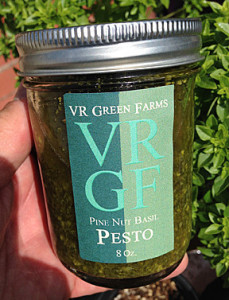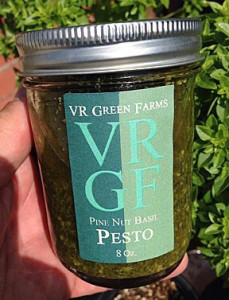Mrs. Kalisz, my middle school family studies teacher warned of the dangers of botulism by showing the class a bulging can of beans (which she kept in a ziplock bag). One of my classmates picked it up while she was demonstrating something and she freaked out like he was shaking a grenade.
I’ve been afraid of botulism ever since.
The first case of food-related botulism recorded in the medical literature occurred in Germany in 1735 and was traced to uncooked fermented blood sausage. Food safety history guru (and pretty decent margarita recipe developer) Carl Custer pointed out in an IAFP workshop that botulism concerns (and regulatory responses) go back further than that. In the 10th century, Emperor Leo VI of Byzantium prohibited the manufacture of blood sausage because of repeated illnesses leaving folks paralyzed and dying not too long after exposure.
Botulism (derived from botulus, the latin word for sausage) is pretty nasty.
The spores, found commonly in soil turn into vegetative cells and secretes neurotoxins when the conditions are right: high pH, no oxygen and temperatures between 41F and 106F.
Sorta like jarred pesto stored at room temperature.
According to my favorite weekly publication, MMWR, two individuals got botulism from contaminated pesto in 2014 linked to a California business.
The two patients reported sharing a meal of baked chicken breasts, boiled pasta, steamed vegetables, and company A Pine Nut Basil Pesto on July 13 at approximately 8:30 p.m.
Patient A received the pesto from a family member who had purchased several jars in May 2014 at a farm stand in San Clemente, California. Health officials in California collected and analyzed an unopened jar of the pesto from this family member’s house. It was found to have a pH of 5.3 and water activity* of 0.965
On July 29, 2014, CDPH began an investigation and discovered multiple jarred food items, including the Pine Nut Basil Pesto, available for sale on company A’s website (VR Green Farms -ben) and farm stand. Neither company A nor the pesto manufacturer had permits or registrations allowing them to legally manufacture or sell canned food, including food in jars, in California. CDPH investigators identified a lack of knowledge of safety issues involved with jarring foods and inadequate acidification and pressurization practices. There were no records indicating that critical factors (e.g., pH, time, and temperature) were monitored during production. Invoices showed at least 39 jars of pesto were produced in 2014. After discussing the link between the cases in Ohio and company A pesto, company A voluntarily recalled all jarred food products. On July 30, CDPH posted Internet and social media notices warning consumers not to eat company A’s jarred foods.
Know the hazards associated with your products. Know how to manage those hazards. Actually do it. Don’t give people botulism.

